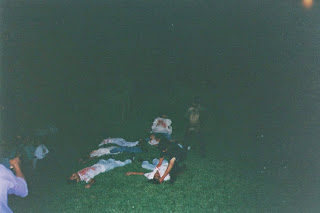I was asked to write-up a brief overview on Ethnic & Cultural Diversity in Northeastern Pennsylvania for a round table discussion scheduled for an event at the University of Scranton on Monday. I was only asked to prepare a five-to-ten minutes so it is not very in-depth. Anyway, I thought that I would share it here.
According to several
studies, approximately 41 million foreign-born immigrants were residing in the United States as of 2012. Mexican-born immigrants comprised approximately 28 percent of that total. Significant populations also came from India, China, the Philippines, El Salvador, Vietnam, Cuba and South Korea. In terms of Pennsylvania, like many states, we have a long history of immigration. Foreign-born immigrants comprise roughly 5.9 percent of the Commonwealth’s population. Recently, the Latino population has grown from 2 percent to 5.9 percent and the Asian population from 1.1 percent to 2.8 percent from 1990 to 2011.
In terms of undocumented immigrants, the estimated number has decreased from a high of 12.2 million or so in 2007 to between 10 and 11 million today. That decrease was caused in large part by growing opportunities in Mexico, increased security on our southern border, record-level deportations, and a significant slowdown in the US economy, particularly in the housing, restaurant and service sectors. While the number of Mexicans coming to the US has decreased rather significantly, we have witnessed a significant increase in undocumented migrants coming from the Northern Triangle of Honduras, El Salvador and Guatemala, where people are fleeing violence caused by drug traffickers, gangs, organized crime, and petty street crime and the lack of economic opportunity. Many young people and families are going north to the United States to reunite with family members that have been here for years. In many ways we believe this is the same pattern that happened with earlier immigrant groups.
When it comes to Lackawanna and Luzerne Counties, an estimated 25,000 foreign-born individuals live here. The foreign born population in Lackawanna County has grown from 2.3 percent in 2000 to 4.6 percent in 2012 while the in Luzerne County, the foreign born population has grown from 1.9 percent to 4.8 percent. There has been a strong increase in the Latino population in the area, as well as increases in the Russian and Indian populations. As of 2012, Scranton also counted some 170 Bhutanese families from South Asia.
According to the 2010
census, Lackawanna County’s Scranton’s population is approximately 80 percent white, 10 percent Latino, 5 percent black, and 3 percent Asian. In Wilkes-Barre, Luzerne County, approximately 79 percent is white, 11 percent black, and 11 percent Latino.









